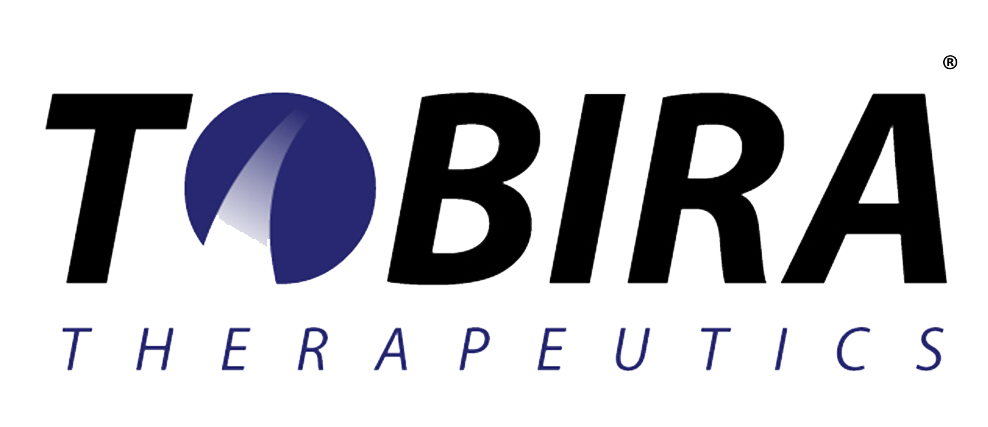
Tobira's Cenicriviroc Shown to Reduce Liver Injury in Independent Research Published in the Journal Hepatology
Print 16 June 2016

SOUTH SAN FRANCISCO, Calif.--(BUSINESS WIRE)--
"This research adds to the data-set that has been generated showing that cenicriviroc consistently demonstrates anti-inflammatory and anti-fibrotic effects in both acute and chronic liver disease models. The model demonstrated that inhibition of CCR2 and CCR5 with cenicriviroc significantly attenuated acetaminophen-induced liver injury in mice, thus showing the potential of cenicriviroc to be hepato-protective," said
About Cenicriviroc (CVC) and Non-alcoholic Steatohepatitis (NASH)
CVC is an oral, once-daily, potent immunomodulator that blocks two chemokine receptors, CCR2 and CCR5, which are intricately involved in the inflammatory and fibrogenic pathways in NASH that cause liver damage and often lead to cirrhosis, liver cancer or liver failure. Tobira believes this novel approach will establish CVC as both a single-agent and as a cornerstone treatment in multi-therapy regimens for NASH, for which there is currently no approved drug.
CVC is currently being evaluated in Tobira's fully enrolled global Phase 2b CENTAUR study (identifier NCT02217475) and the company expects to announce the study's primary endpoint in the third quarter of 2016. CENTAUR is comparing CVC to placebo in 289 patients with NASH and liver fibrosis. CVC has been granted Fast Track status in patients with NASH and liver fibrosis, the patient population at highest risk of progression to cirrhosis. The CENTAUR study includes surrogate endpoints identified as suitable for registrational studies in findings of an FDA-AASLD workshop reported in Hepatology and in use in current Phase 3 studies. To date, over 600 subjects have been dosed in completed studies with CVC, including 115 HIV infected subjects on treatment for up to 48 weeks. Additionally CVC treatment was associated with improvements in metabolic parameters and a safety profile comparable to placebo in patients with non-alcoholic fatty liver diease and NASH in the interim analysis of the ongoing ORION Phase 2 study.
NASH is an emerging health crisis impacting 3% to 5% of
About
Tobira is a clinical-stage biopharmaceutical company focused on the development and commercialization of therapies to treat liver disease, inflammation, fibrosis and HIV. The company's lead product candidate, cenicriviroc (CVC), is a first-in-class immunomodulator and dual inhibitor of CCR2 and CCR5 being evaluated for the treatment of non-alcoholic steatohepatitis (NASH), primary sclerosing cholangitis (PSC) and as an adjunctive therapy to standard of care in HIV. Tobira's pipeline also includes evogliptin, a selective DPP-4 inhibitor, which it plans to develop for NASH in combination with CVC. Learn more about Tobira at www.tobiratx.com.
Forward-Looking Statements
This release contains forward-looking statements made pursuant to the safe harbor provisions of the Private Securities Litigation Reform Act of 1995. Forward-looking statements reflect management's current knowledge, assumptions, judgment and expectations regarding future performance or events. Although management believes that the expectations reflected in such statements are reasonable, they give no assurance that such expectations will prove to be correct and you should be aware that actual results could differ materially from those contained in the forward-looking statements. Forward-looking statements are subject to a number of risks and uncertainties including, but not limited to, the company's clinical development of cenicriviroc (CVC); the potential timing and outcomes of clinical studies of CVC undertaken now or in the future; the ability of the company to timely source adequate supply of its development products from third party manufacturers on whom the company depends; the company's limited cash reserves and its ability to obtain additional capital on acceptable terms, or at all; the company's ability to successfully progress, partner or complete further development of its programs; the uncertainties inherent in clinical testing; the timing, cost and uncertainty of obtaining regulatory approvals; the company's ability to protect the company's intellectual property; competition; changes in the regulatory landscape or the imposition of regulations that affect the company's products; and other factors listed under "Risk Factors" in the company's other filings with the
All Portfolio
MEDIA CENTER
-
The RMI group has completed sertain projects
The RMI Group has exited from the capital of portfolio companies:
Marinus Pharmaceuticals, Inc.,
Syndax Pharmaceuticals, Inc.,
Atea Pharmaceuticals, Inc.

